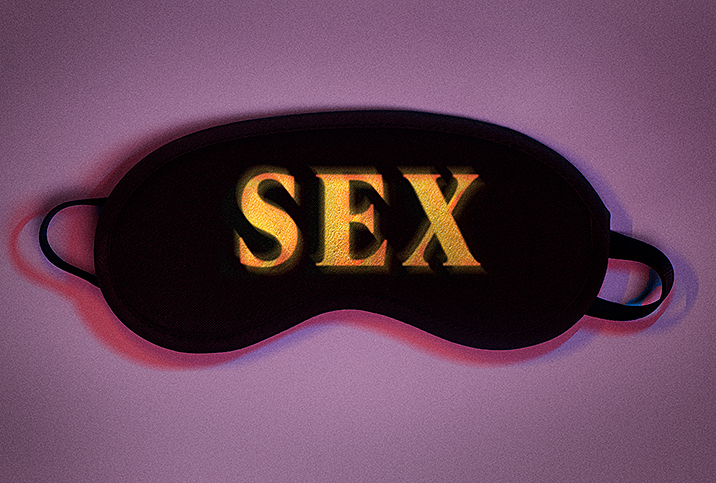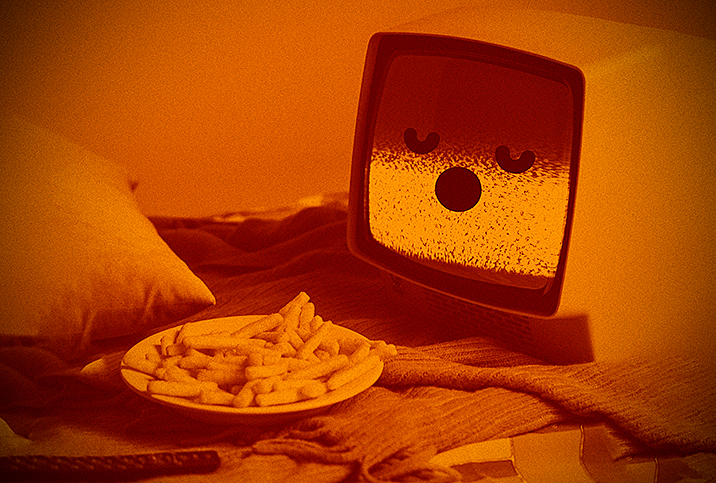What Is Sexsomnia?

Sexsomnia is a category of parasomnia that occurs during non-rapid eye movement (REM) sleep. This disorder causes people to engage in sexual acts such as masturbation, fondling and sometimes even intercourse in their sleep.
If sexsomnia negatively affects your or your partner’s quality of life, know that help is within reach. Living with sexsomnia is nothing to feel ashamed or embarrassed about, but understanding the condition and its symptoms can help you determine whether you should seek treatment.
What is sexsomnia?
People who suffer from sexsomnia engage in sexual behaviors, thoughts or acts while they are in a state between wakefulness and being asleep. This in-between state is the same state in which people with parasomnia sleep-talk or sleepwalk.
Someone with sexsomnia might seem awake and aware while masturbating, initiating intercourse or fondling their partner. However, as with sleepwalking and other forms of parasomnia, the individual probably won’t remember these nighttime sex acts upon waking.
The American Academy of Sleep Medicine found that sexsomnia occurred in nearly 8 percent of patients in a sleep disorders center. This suggests there may be a connection between people with sexsomnia and other sleep disorders. In fact, studies show that about 47 percent of sexsomnia patients have a history of sleepwalking or night terrors.
Having sexsomnia can be a cause of concern in some instances, since it can have legal consequences for some people if it leads to nonconsenual sex with a partner. It can also impact the social and emotional aspects of relationships. Sexsomnia can disrupt your or your partner’s sleep quality and cause daytime sleepiness or chronic fatigue, but it can also affect your sexual relationship, because the behavior may cause shame or insecurity about the act of sex.
If you or your partner experience the following signs and symptoms while asleep, sexsomnia might be the culprit:
- Moaning
- Heavy breathing
- Fondling
- Sweating
- Thrusting
- Masturbating
- Initiating intercourse
- Spontaneous orgasms
- A blank or glassy stare
- No memory of sexual events
- An elevated heart rate
Because of sexsomnia, you or your partner might feel tired when waking up, even after getting a full night’s sleep. If this is the case, check in with your doctor about your symptoms. A professional counselor or a psychologist may also be useful.
Risk factors & treatments
Sexsomnia occurs among men more commonly than women; the American Academy of Sleep Medicine found that it affected men three times as often.
While its cause isn’t entirely clear, sexsomnia often begins after puberty. Individuals who talk in their sleep or sleepwalk are more at risk for developing sexsomnia.
Other sexsomnia risk factors include using recreational drugs, excessive alcohol consumption, chronic sleep deprivation, stress and taking certain medications, including hypnotics, which are associated with hallucinations. Obstructive sleep apnea, another type of sleep disorder, is also linked to sexsomnia.
Sexsomnia can be difficult to diagnose, but talking with a partner about your symptoms or joining a sleep study can be a good start. In addition, talk to your doctor about possible treatments, as well as any medication you are currently taking or any new medications you’ve just started. Also, mention any recreational drugs you have taken recently.
The doctor might recommend a personalized treatment plan if sexsomnia results in relationship problems, daytime sleepiness or other undesirable side effects.
Here are some treatments your doctor might recommend:
- Healthy lifestyle changes. Reduce stress, abstain from recreational drug use and avoid excessive alcohol intake. Develop healthy sleeping habits, minimize sleep interruptions, and don’t watch TV or spend time on electronic devices before sleep. Because obstructive sleep apnea is linked with sexsomnia, it’s important to maintain a healthy weight and manage your sleep apnea as best you can.
- Medication changes. Some medications might increase your risk of sexsomnia, so ask your doctor about possible changes to your treatment regimen. Your doctor might recommend you try over-the-counter or prescription medications that can reduce nighttime episodes linked with sexsomnia.
- Sleep apnea treatments. These may reduce or eliminate sexsomnia symptoms. Examples include using a continuous positive airway pressure (CPAP) machine when you sleep or wearing a mouthguard at night to improve airflow and breathing.
If you or your partner experiences sexsomnia, it’s no reason to be ashamed. It is important to be open and nonjudgmental if your partner is exhibiting symptoms, because they may be ashamed or not believe you, since it happened during sleep. Talk with your doctor about personalized treatment options if your sleep disorder negatively affects your quality of life.

















